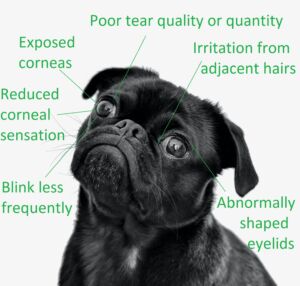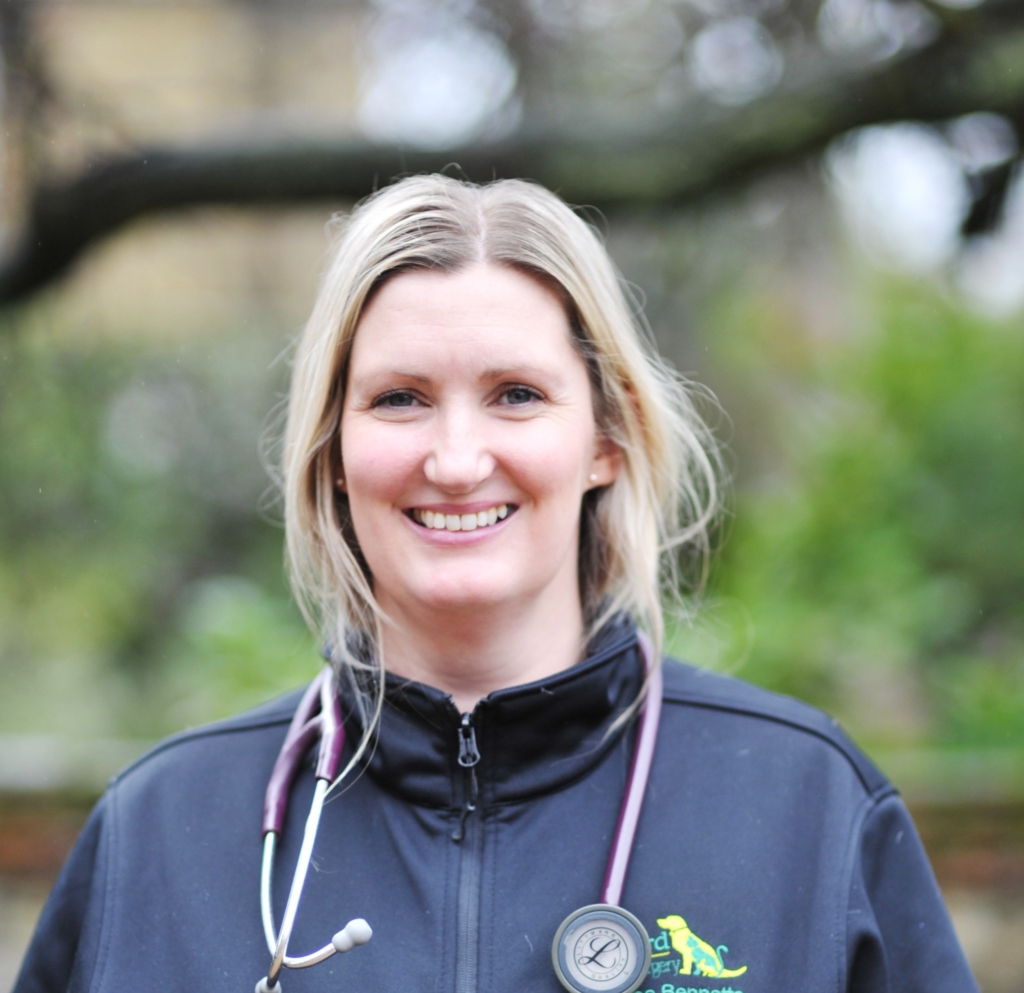Brachycephalic breeds are unfortunately predisposed to eye problems. They may even have several issues at the same time hence the title “brachycephalic ocular syndrome”.
What are brachycephalic animals?
Brachycephalic breeds are those with short noses and flat faces, this is in cats and dogs.
Breeds include : Pugs, French Bulldogs, Shih Tzus, Boston Terriers, English Bulldogs, Cavalier King Charles Spaniels and Boxers.
British Short hairs and Persians are the most common cat breeds along with Exotic Shorthairs.
Awareness of the common eye problems these breeds can get can allow early recognition and thus prompt intervention to ensure your pets eyes stay as healthy as possible.

THE GOOD NEWS IS WE CAN HELP IMPROVE BRACHYCEPHALIC EYE HEALTH…
Regular veterinary examinations
Ocular screening is recommended every 12 months in at risk breeds
Screening will identify any anatomical problems that may require surgical or medical intervention.
Lubricate the eyes
Daily lubrication of a brachycephalic as part of your pets routine can help support eye health – please speak to us about choice of lubricant. This also gets your pet used to having eye drops helping training for potential future intervention.
Keep the eyes clean
Remove any debris or discharge that builds up around your pets eyes or in the skin folds near to them. Again performing this as your daily routine with your pet will allow you to promptly identify any changes so that you can alert your vet. But also reduces tear staining and helps prevent infections developing. Again please check with us about which cleaners are safe to use around the eyes.
DID YOU KNOW?
Catherine Bennetto our vet has successfully completed the BSAVA Postgraduate Certificate in Small Animal Ophthalmology (BSAVA PGCertSAOphthal). The certificate equips veterinary surgeons with the knowledge and expertise that they need to deal with the medical or surgical situations that they encounter regularly. The programme also explores complex techniques and new advances, better enabling them to discuss treatment options and potential outcomes with clients, as well as to refer appropriately.
If you have any concerns about your pets eyes then book an appointment today by calling 01702 545558.


